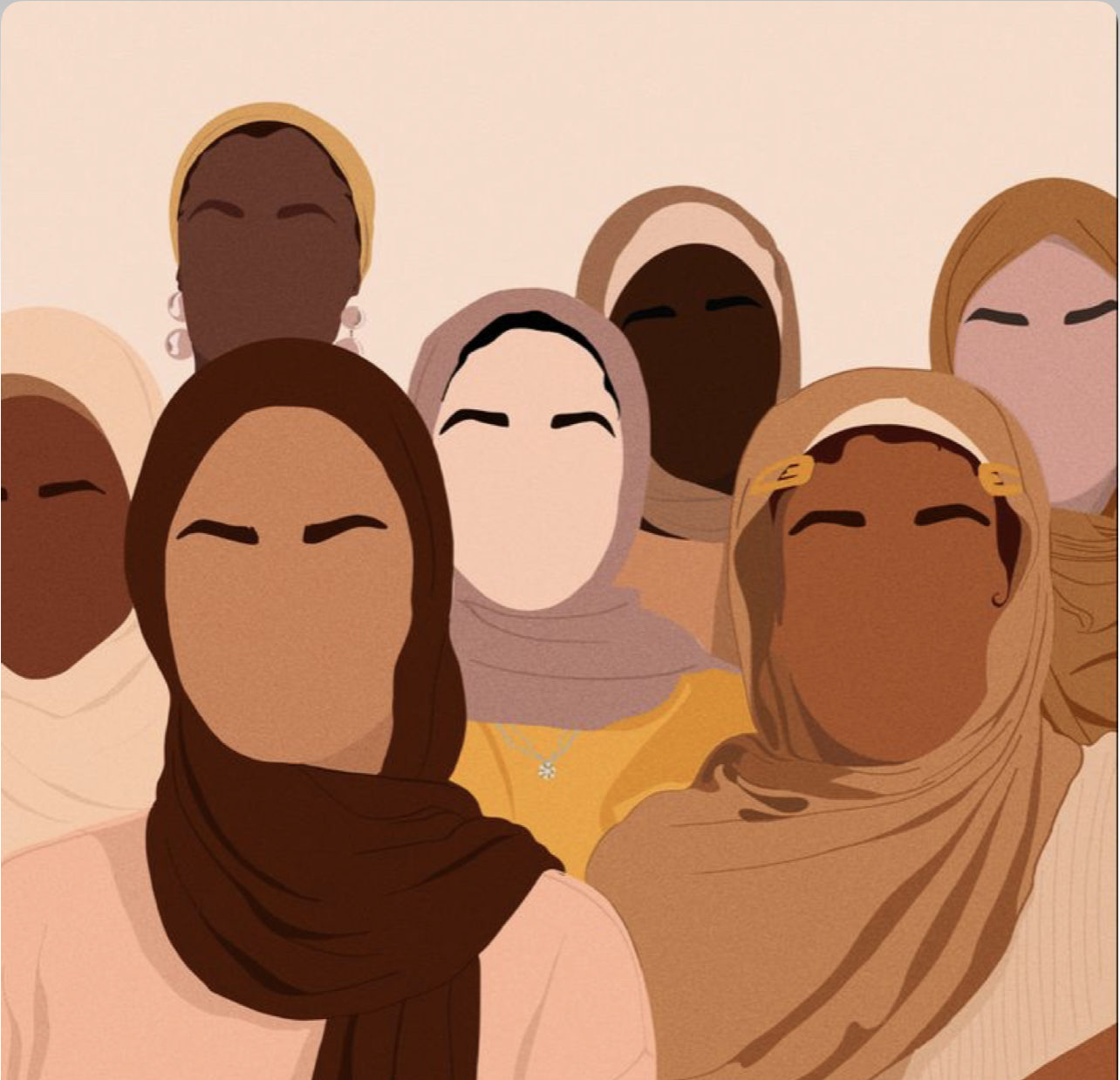Art by Zeinab Fofana.
Recently in India, in the southern state of Karnataka, an Indian court banned all wearing of religious clothing such as the hijab. This issue has created a rise of tensions involving countless protests and even violence. The ban on wearing the hijab led many worried mothers to preach how this violates girls’ right to an education and the free practice of their religion. A 16-year-old girl living in Karnataka said she fears for her life and future wearing the hijab.
We see Islamophobia affecting the lives of individuals all over the globe. On February 9th, Hoda, who is a Muslim teen girl attending Otago Girls High School in New Zealand was brutally beaten and had her hijab ripped off. Hoda was severely injured, and she was rushed to the hospital by her father, since the school didn’t even call for an ambulance. Even when the fight had finished, the attackers continued yelling other racially motivated words such as “Terrorists” and “Muslim B*tches.” We see this happening so often, but no action is being taken from the schools to stop these Islamophobic acts.
The Bay Area, home to one of the largest populations of Muslims in America, has seen how Islamophobia affects so many individuals. A junior at Washington High School, and a leading member of the Muslim Student Association, Zahi Imaduddin expresses how he feels by saying, “The hijab ban is a horrifying reminder that Muslims still have to face discrimination. It’s even more horrifying how this religious oppression piggy-backs on the oppression of women and their pursuit of education in India.” Imaduddin continues by saying, “Being Muslim in the Bay Area has been a blessing. The Bay Area is very accepting and accommodating of all lifestyles and I feel I can fully express myself without the fear of discrimination. In the Bay Area safety bubble I feel safe. However, there are parts of the world, where the family of my friends live, that aren’t as safe.” We can see how discrimination follows us everywhere; it’s important that we have a strong support group that fights against discrimination.
However, the hijab for me is a source of comfort, because being visibly Muslim allows me to connect with other hijabis.
The majority of Muslims who face discrimination are women who wear the hijab. In order for these horrible atrocities to stop, we need to educate many prejudiced individuals that the hijab is not worn by force. Muslim women choose to practice their religion, and a part of that is wearing the hijab. Masooma Ali, a senior at Washington, said “India is not the first country to ban the hijab, or other coverings for Muslim women. It’s sad to see people view the hijab as something oppressive, when it can be liberating and empowering. If people are allowed to express themselves in other ways, like wearing makeup, choosing their shoes, or even wearing caps for sports teams they like, I don’t see why the hijab is a problem.” Ali continues by saying, “In the Bay Area, people are not as Islamaphobic in the sense that they are scared of Muslims, but they think Muslim should be liberated. For example, I’ve had a lot of people tell me that I don’t need to wear the hijab in America, but they don’t understand that I’m not being forced to wear it. I am proud of my identity, especially because I am a Shia Muslim, which is a minority within Islam. I often experience more discrimination within my own community (other sects of Islam) rather than with non-Muslims in the Bay Area. There are certain things that I worry about, like being profiled, or the hassle that is airport security. In general, however, I feel comfortable being Muslim because I have pride in it. Wearing the hijab shows to other people you are Muslim, and that can be scary because people might think of you as a representative for all Muslims. It creates a pressure to set a good example, because you don’t know how you’re being judged. However, the hijab for me is a source of comfort, because being visibly Muslim allows me to connect with other hijabis.” Wearing the hijab isn’t forced upon women in Islam; the women who wear the hijab do it by choice.
There are many factors as to why Islamophobia has such a dramatic impact on many individuals, and it’s our job as a society to accept each other for who we are. In conclusion, educating each other on discrimination can have a huge impact on making the world a better place.
Heba Kibboua is a senior at Washington. She grew up in Fremont, California but her roots are from Algeria and Afghanistan. This is her first year at the Hatchet. Her journalistic interests are mainly world issues, such as the Taliban takeover of Afghanistan. She also has a passion for activism and equal rights. Her hobbies consist of baking and skating. An extracurricular activity she is a part of at school is being the president for ASU (Afghan Student Union). Her future plans are going to medical school to become a physician's assistant.

